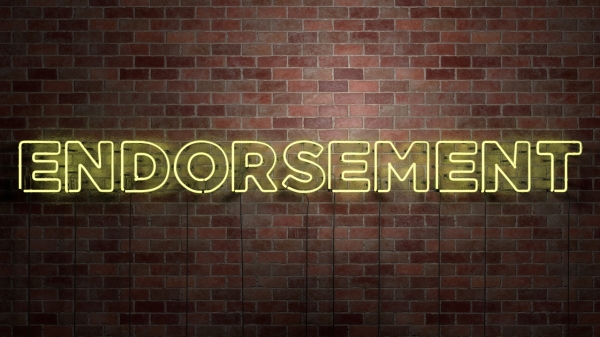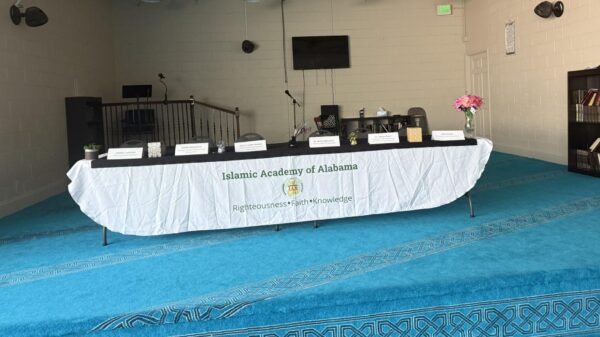By Chip Brownlee
Alabama Political Reporter
As lawmakers make their way back to Montgomery for the Legislative Session this year, a branch of the nation’s largest LGBT civil rights organization says Alabama is still far behind in its protections for LGBT people.
The State Equality Index, an annual comprehensive report released by the Human Rights Campaign rating each state’s laws and policies that affect LGBTQ people and their families, recently placed Alabama in the “High Priority to Achieve Basic Equality” category — the lowest category on the scorecard.
Along with 27 other states, Alabama was in the same place on the scorecard last year but this year’s is worse. The state received lower marks on its rating because of a law passed last year that will allow faith-based adoption foster agencies in the state to refuse services to same-sex couples if it’s against their religious convictions.
The bill was sponsored by Rep. Rich Wingo, R-Tuscaloosa, and signed by Republican Gov. Kay Ivey. The law limited the bill’s protections to private faith-based organizations that do not receive any state or federal funding.
Alabama also remains as one of 31 states in the US that lacks explicit workplace non-discrimination protections on the statewide level to protect LGBTQ employees from being fired for simply coming out as LGBTQ.
The scorecard tracks “good bills” and “bad bills” for LGBT rights introduced in the legislative session. In the 2017 session, six “bad bills” were introduced, matching the previous year’s number, but no “good bills” were on the table. The previous year, four “good bills” were introduced and one passed
During the 2017 session, though, a Republican bill that allows the state to regulate faith-based boot camps, which often practice conversion therapy, did pass, albeit without the support of the Human Rights Campaign. The group said it did not do enough to protect LGBT youth and prevent the discredited practice of conversion therapy.
With the new regulations in place, new camps — which are often operated by people from outside the state — will have to register with the Department of Human Resources and be subject to inspections and other regulations.
While the state legislature has continually passed laws the HRC finds detrimental to LGBT equality, municipalities are leading the way in protecting LGBT rights, the HRC said — even in Republican states like Alabama.
Last year, Alabama’s largest city, Birmingham, passed a housing and employment ordinance that will, for the first time in the Yellowhammer State, protect LGBTQ individuals from discrimination based on their sexual orientation or gender identity.
Elsewhere in Alabama, gay, lesbian, transgender, bisexual and queer individuals can be fired by their employer based on their sexual orientation or their gender, or they could be denied housing or evicted. Discrimination will now be an offense in Birmingham under the changes and could be enforced in municipal court.
Birmingham has often been the first city in Alabama to pass progressive ordinances such as the LGBT-inclusive non-discrimination ordinance, but the state Legislature has shown a strong willingness to preempt those laws after they’ve been passed. Alabama has no constitutionally guaranteed home rule and the Legislature can overrule many local ordinances.
“Despite an historic victory in Birmingham with the state’s first LGBTQ-inclusive nondiscrimination ordinance being passed in September 2017, the State Equality Index identifies many areas of opportunity and advancement for LGBTQ equality in Alabama,” said Alex Smith, Executive Director of Equality Alabama. “Equality Alabama is poised both to fight against a preemption of this ordinance in the 2018 legislative session and to support pro-equality pieces of legislation that aim to provide nondiscrimination protections statewide, make it easier for transgender and gender non-conforming individuals to change the gender marker on their birth certificates and state IDs, and remove homophobic language from the state’s sexual health education statutes.”
The fact that Alabama is one of 31 states without explicit state-level protections for LGBT people is an issue for LGBT individuals as they live, travel or move across the country, the HRC says.
“If an LGBTQ couple drove from Maine to California today, their legal rights and civil rights protections could change more than 20 times at state borders and city lines. The vast majority of Americans today understand that this crazy quilt of protections — and lack thereof — is wrong, impractical, and unacceptable,” said HRC President Chad Griffin. “The time has come for us to do away with this ragged patchwork of state laws that fail to protect LGBTQ people equally by passing the Equality Act once and for all.”




















































